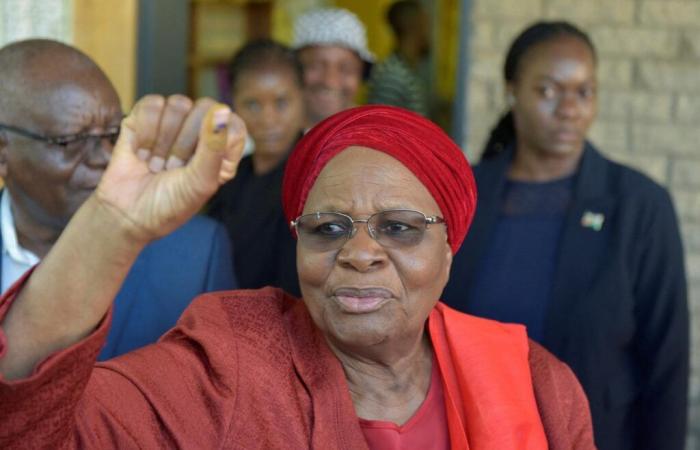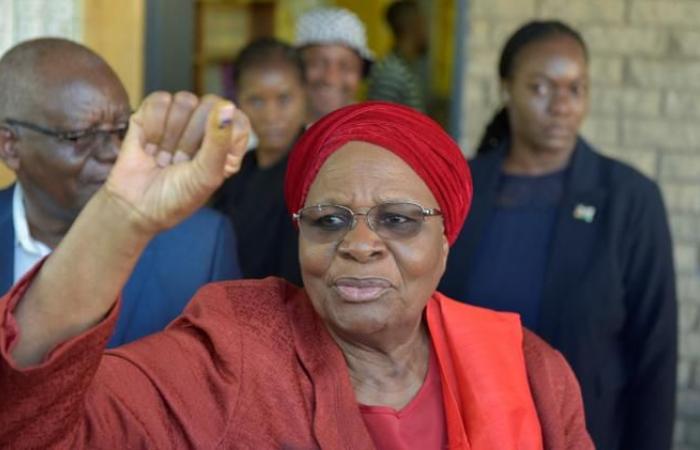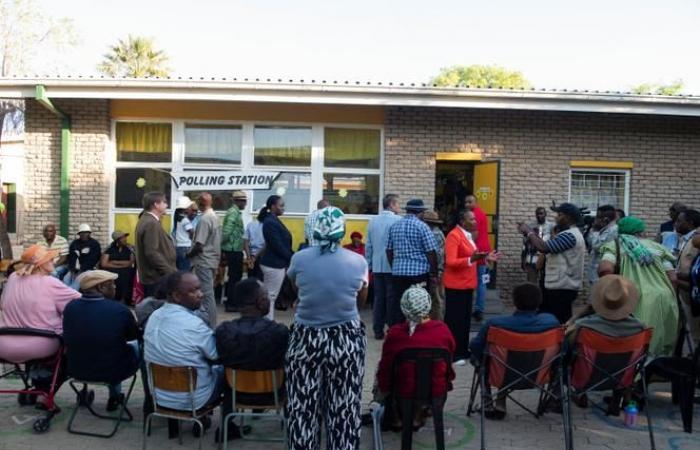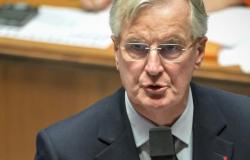Since 7 a.m., Namibia has been called to the polls on Wednesday, November 27, in a double vote, both presidential and legislative, with high stakes. These are the most uncertain elections experienced by the historic ruling party, the South West African People's Organization (Swapo, socialist), while although favorite, its candidate, the current vice-president Netumbo Nandi-Ndaitwah could be forced into an unprecedented second round.
The 72-year-old candidate, who could become the country's first female president, faces at the polls the former dentist and lawyer Panduleni Itula, who founded, in 2020, her own party, the Independent Patriots Party (IPC). The ballot boxes, blue for the presidential election, yellow for the legislative elections, must be filled until 9 p.m., according to the votes of the million and a half registered voters. The count is expected no later than Saturday, according to the Electoral Commission.
Nicknamed “NNN”, the Swapo candidate, a figure in the struggle for liberation, voted from the opening, at the polling station at the Emma Hoogenhout school in Windhoek, the capital. “By voting, you ensure that your voice is heard and has an impact on your life for the next five years”launched the vice-president, before adding: “So come and vote in numbers. » A 67-year-old Swapo dissident, Panduleni Itula won 29.4% of the vote in the previous presidential election without a party to rely on. The president, Hage Geingob, who died in February 2024, was then re-elected with 56% of the votes.
Second most unequal country in the world
Massive unemployment, persistent inequalities and generational renewal have eroded support for Swapo in this desert territory of southern Africa, one of the world's leading suppliers of uranium. After three decades of reign of the Marxist-inspired movement, Namibia remains, after South Africa, the second most unequal country on the planet, according to the World Bank.
“The abundant mining activity does not really translate” par “job opportunities”observes independent analyst Marisa Lourenço. What “fuels a large part of the frustration of young people” Namibians, of which 46% of 18-34 year olds were unemployed in 2018, according to the latest figures.
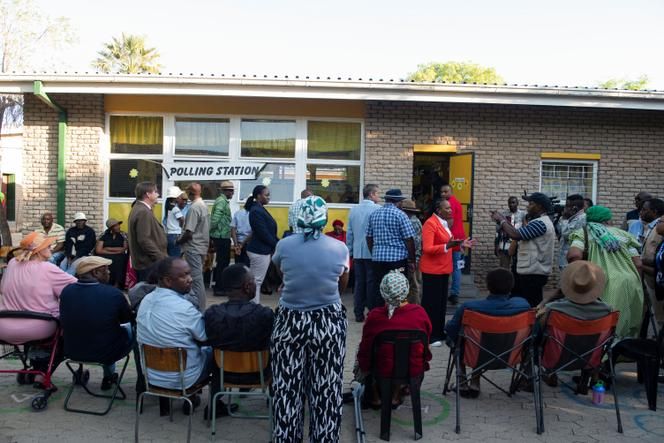
A wind of change has been blowing, moreover, for several months in the south of the African continent. In the wake of the electoral setback for the ANC in South Africa, stripped of its absolute majority, the BDP, in power since 1966 in Botswana, was swept away. Swapo, which fought for the country's independence, under the yoke of apartheid South Africa until 1990, fears the same fate as its sister parties in the region.
These parties no longer have the same appeal among born freethese young people born after the liberation of their country. Like the rest of the continent, Namibia has a youthful population: 63% of its 3 million inhabitants are under 30 years old. “It’s not just that they are young and have not experienced liberation, it’s that they are bearing the brunt of the effects of the economic crisis”observes Nic Cheeseman, specialist in African politics at the University of Birmingham.
Stay informed
Follow us on WhatsApp
Receive the essential African news on WhatsApp with the “Monde Afrique” channel
Join
“The elections are now about basic livelihood issues”analysis from Agence France-Presse Tendai Mbanje, researcher at the African Center for Governance. This is why “NNN” promises in its program the creation of more than 250,000 jobs in five years. But Mme Nandi-Ndaitwah warned on Sunday during his final meeting that “the business world can only prosper if politics is stable”.
While the legislative elections are held proportionally, a second round during the presidential election is, for the first time, a “fairly realistic option”according to Henning Melber, researcher at the Nordic Africa Institute in Uppsala (Sweden). This must be held, at the latest, within sixty days following the announcement of the final results, according to electoral law.
“I want the country to get better and people to have work”declared to Agence France-Presse Hendry Amupanda, 32 years old and first in the line of around a hundred voters waiting in front of the yellow gates of the same polling station in Windhoek. Slippers on, this self-employed digital entrepreneur arrived at 9 p.m. the day before, equipped with a chair, a blanket and snacks. Further in the queue, bathed in the first rays of sunlight on the Windhoek basin, Frieda Fillipus hopes to see a “woman president”. “The feminine represents the future”according to this 31-year-old worker in the mining industry.
Read also | Namibia: High Court invalidates law criminalizing same-sex relations
Read later

